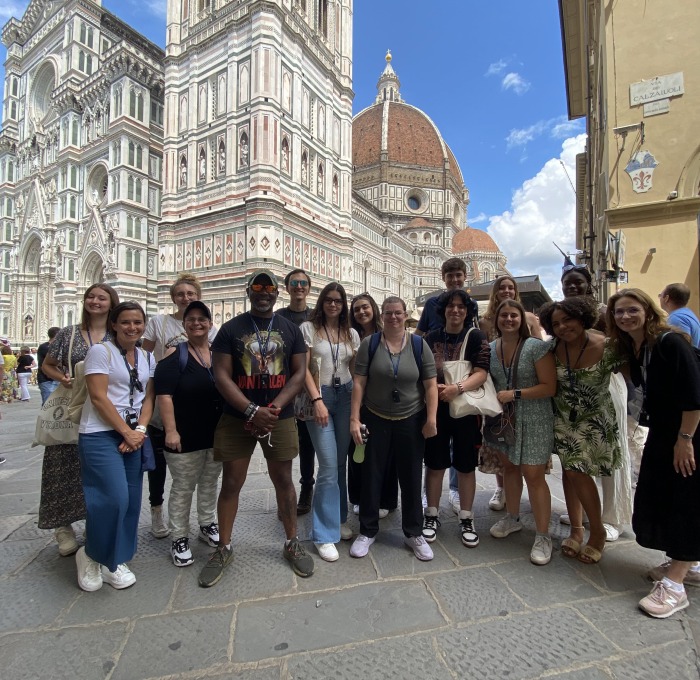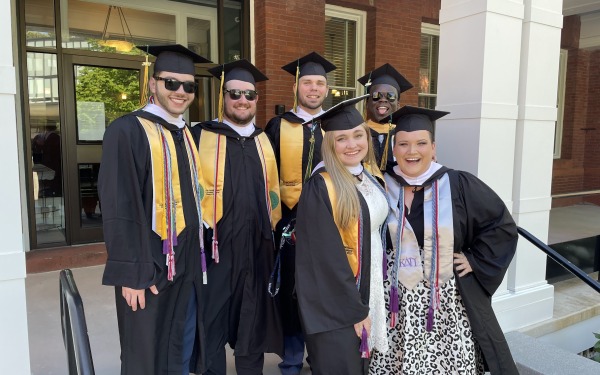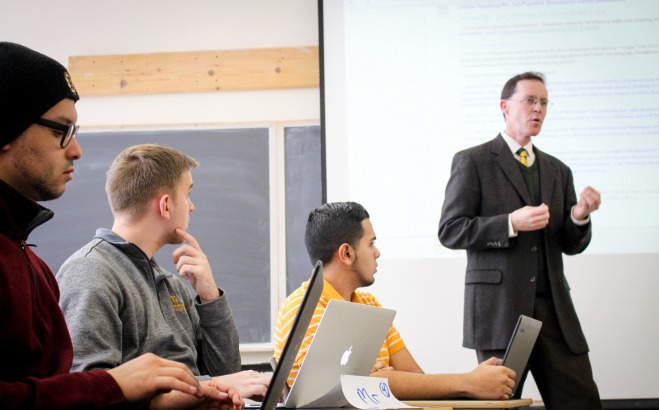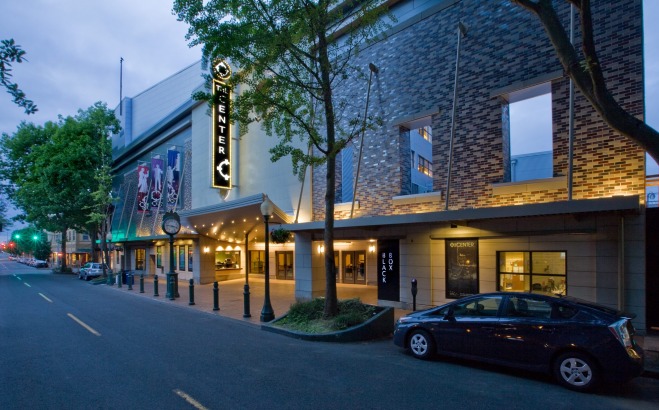
In Short
A degree in History prepares you for opportunities in education, law, policy, business, media and more. Historians' skills are in demand any time we need to analyze the past to make decisions for the future!
- Chart your own path, including a 4+1 Pathway that allows you to obtain a master's degree in five years while working closely with faculty in areas that interest you
- Develop analytical, research, and writing skills that prepare you for multiple careers
- Participate in active learning simulations where you’ll be assigned historical roles in major events and will collaborate and compete with others to advance your objective
Our students study the past to build the future!

Program Overview
If you're interested in an education that prepares you broadly for any profession that relies on critical thinking, communication, and analysis, Fitchburg State University has the program you need. A degree in History prepares you to understand the present through knowledge of the past and to leverage your skills for careers in a wide range of fields, from teaching and public history to law, public policy and many more.
Because it is impossible to understand the present without some knowledge of the past, history serves as a cornerstone for any liberal arts or pre-professional program. Course offerings range from the ancient worlds of Europe, Asia and the Americas to the modern United States and the world in a global culture. History majors gain proficiency in reading, writing and critical thinking through coursework that emphasizes research methods and interpretive skills.
Learn about History major Gabriel Rivera's experience at Fitchburg State University in this One Minute Major video.
I've conducted all sorts of research for writers, directors, and artists on films and television shows, developed a short animated pitch with the development team, participated in story trusts, performed scratch voice acting for storyboards, and all sorts of fun things.
Get Involved
Extracurricular Learning
Internships
Study Abroad
Curriculum and Other Information
- BA, History - Program information from the University Catalog.
- BS, History - Program information from the University Catalog.
- History Concentration in Initial Licensure (5-12), History, BS - Program information from the University Catalog.
- Four-Year Plans of Study - Required and elective courses for program completion.
Historical Knowledge
Graduates with a baccalaureate in history understand the diversity of human experience in the past, as well as the nature of the historical enterprise. They acquire the ability to explain developments in U.S. and world history and their significance; become familiar with different approaches to and methods of historical study; and understand the challenge of weighing multiple perspectives and evaluating the merits of competing interpretations.
Historical Reasoning and Research
Graduates with a baccalaureate in history understand the nature of historical interpretation, the variety of historical sources, and the structure of historical arguments. They are able to pose a significant research question about the past; locate, explain, evaluate, and utilize information from and about the past to answer a research question; and utilize primary and secondary source evidence to support a historical argument.
Communication
Graduates with a baccalaureate in history develop diverse communication skills, including reading to extract and construct meaning from text and non-textual sources; writing persuasive and evidence-based arguments; and creating oral, multimedia, and digital presentations.
Summary Statement
Through each of these three areas, students taking history courses obtain training in problem solving through the analysis of data and literary and artistic evidence to put forth and evaluate arguments, practice effective skills of communication in expressing ideas, obtain knowledge of citizenship at the local, national and global levels, confront ethical issues in historical reasoning and research, and understand context that produces artistic works.
- Business – research and analysis, marketing
- Digital archives
- Editing
- Graduate School
- Government and public policy
- Library science
- Non-profit organizations
- Teaching in middle and high schools (public and private)
- Professional writing
- Public history


